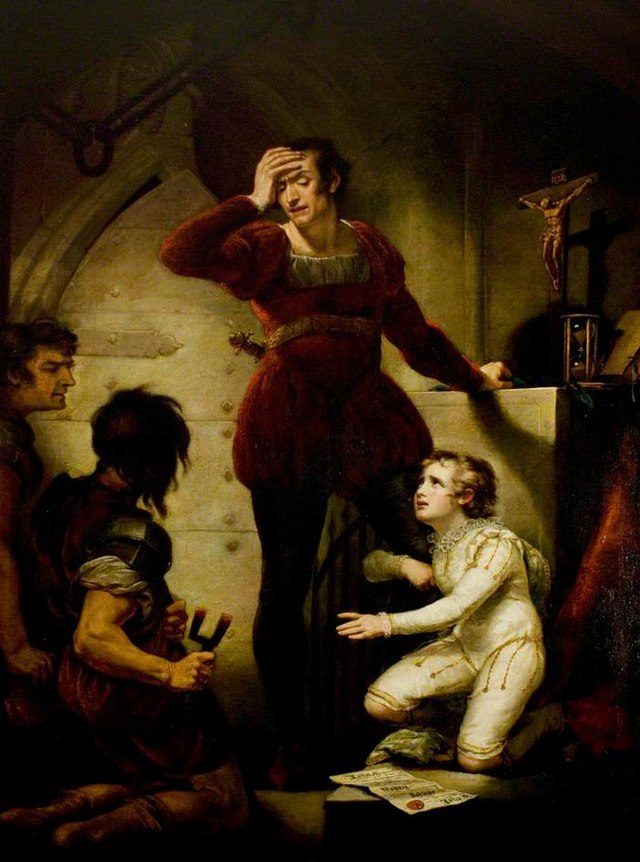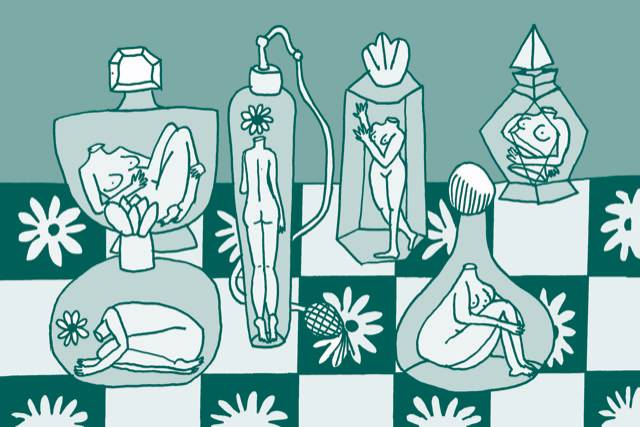
Icon of the Week: Peter Sutton, Artistic Director of the Jesus College Shakespeare Project
Peter Sutton is Jesus College’s Alumni Engagement Manager and the artistic director of the Jesus College Shakespeare Project [JCSP], which aims to stage all of Shakespeare’s plays, one per term, finishing in Hilary Term 2034. To widen access to Shakespeare and drama, the Project also brings in schoolchildren to attend performances and discuss the plays with the actors.
Can you tell us a little about yourself and your background?
I’m from Durham originally and I came to read English at St Hugh’s in 2010. I was here in Oxford for three years, and then I went even further north than Durham to St Andrews to do my master’s—I thought I’d be there for a year but ended up doing my doctorate there. After that I moved to Staffordshire briefly and then this job came up at Jesus, looking after alumni engagement.
How did the Jesus College Shakespeare Project get started?
Jesus College turned 450 in 2021, which makes us Elizabethan. We wanted to do something to celebrate our status as the one Elizabethan college, so I talked to our English Fellow [Professor Paulina Kewes], and since Shakespeare is probably the greatest of all Elizabethans, we knew we wanted to do something Shakespearean.
Before I came to university, I was in a Shakespeare performance group (still existing to this day, I’m really glad to say!) which toured locally, performing hour-and-a-half productions for charity.
So, we thought this idea could work if we transplanted it into a student setting.
I’ve always liked complete sets; I’ve never liked to have half a set of things… I’m like a marketing person’s dream. I remember saying to Paulina that I’d quite like to do all of [Shakespeare’s plays]—she took a definite pause and then said, “Great, why don’t we get schools involved?” Then we started talking to our access team and the wider College to get things in motion.
We were originally set to do our first play in October 2020, but obviously because of the pandemic we had to delay it to 2021. We’re proceeding roughly in chronological order, so the first play was The Comedy of Errors.
What was the Oxford drama scene like when you were a student, and how has it changed since then?
In some ways I’m not the best person to ask about this—I remember having a conversation with one of my tutors in my first term and asking her how many plays I should do. She asked, “Per year?” I said, “No, per term,” and she very emphatically replied, “One.” She did also say, “Oh, go and watch plays—takes far less time.” So I do remember seeing actors in Oxford who have now gone on to places like the RSC [Royal Shakespeare Company]—like James Corrigan, whom I saw as Stanley in A Streetcar Named Desire in my first term.
My other great love in life is Gilbert and Sullivan, so I ended up joining the Gilbert and Sullivan Society here and directed for them—I devoted my time with drama essentially towards that. Directing for Gilbert and Sullivan definitely influenced me in terms of the idea of creating a collaborative ensemble—actors can do one-off shows or stay and do a lot of shows, and that’s what the JCSP has come to be.
Directing itself wasn’t as collaborative of a process then as it is now, I think. Personally, I work with other directors on JCSP plays to assist me with the creative process—and if I do have some knowledge to impart for people who are interested in directing and maybe don’t want to take on a whole production on their own, it works both ways.
In terms of drama more widely, the world of drama has become far more representative. And also there’s a bit more energy, I think, that’s coming back now after the pandemic.
What do you imagine will and will not change over the next ten years of the JCSP and in Oxford drama in general?
For the JCSP, more social activities and further creating that sense of an ensemble or a group. And touring, that’s a big thing—Titus [Andronicus], the play we’re doing this term, is our first that will go on tour. Romeo and Juliet will go next March to schools in Wales, which is the access area of College, for more than one day, which I’m really excited about, thanks to one particularly generous donor.
More generally, since coming back to Oxford and going through the pandemic, suddenly there was a sense of not wanting to engage with as wide a variety of texts as when I was a student, which thankfully is coming back now. There are definitely some wonderful pockets to be explored more, and I’m hoping this will continue and we’ll start seeing more of Shakespeare’s contemporaries, more eighteenth-century drama, Restoration comedies, and early nineteenth-century drama.
Beyond that, I don’t know, really—there’s also the excitement of that!
Why Shakespeare?
Shakespeare is the most recognisable figure, other than Elizabeth, from that era, so from the College heritage perspective there is that angle. At the same time, I’m a great believer in other Elizabethan and Jacobean writers—my doctoral research was on Ben Jonson, Shakespeare’s contemporary, and I think it’s great that other writers and other plays are now getting more attention as well.
But there is something special about Shakespeare. He’s always relevant. I’m reminded of the critic James Shapiro, who said something like, “I read The New York Times to find out what’s happening in the world; I read Shakespeare to understand it.” With the headlines at the moment, Titus is terrifyingly realistic—that’s why it’s scary. That’s why we need to still stage these plays and find new ways of doing so that are accessible, fun and clear.
I also think that we can’t sanitise them or let Shakespeare off the hook—especially with younger audiences, they’re very interested in when Shakespeare speaks in ways that we don’t agree with. And it’s a challenge! I like a challenge.
Are there any future JCSP plays that you anticipate being a little thorny or difficult to put on?
In terms of actual staging, how on earth Antony is going to get into Cleopatra’s monument, I don’t know yet—but there’s still a few years! Titus is thorny… and I suppose The Merchant of Venice is going to be interesting. I think it’s a fascinating, brilliant play, but I definitely want to engage the fact that it’s about prejudice in so many different ways. There are ways to do it and ways not to do it, and that’s about trying to reach out to different voices and get knowledge I don’t have about how we can maybe put that play on. Like Titus, it’s a vital play to put on—I wouldn’t not do them. As I said earlier, I think it’s important we don’t cut out the difficult parts, even when it’s down to an hour and a half.
And I’m a bit scared about A Midsummer Night’s Dream, just because everyone does it. But the one thing I know is, for Bottom… I do want a proper donkey’s head.∎
Words by Rijul Jain. Photo courtesy of Wikimedia Commons.







